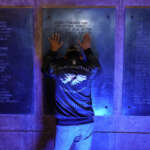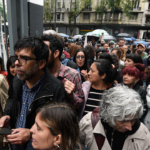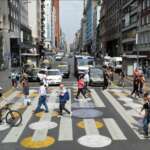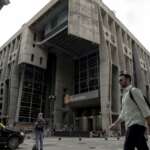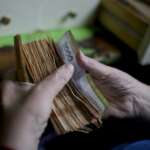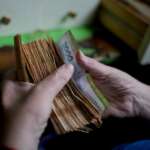A Closer Look at Argentina
Argentina Flag

Argentina Formation Date
May 25, 1810
Argentina Capital Name
Buenos Aires
Argentina Neighbours
Exploring Argentina
Argentina: A Vibrant and Diverse Country
Argentina is a country located in the southern region of South America, bordered by Chile to the west, Bolivia and Paraguay to the north, Brazil and Uruguay to the northeast, and the Atlantic Ocean to the east. With a land area of over 2.7 million square kilometers, it is the eighth largest country in the world and home to a population of over 45 million people. The name "Argentina" comes from the Latin word "argentum," meaning silver, due to the abundance of silver found in the region during the Spanish colonial period.Key Takeaways:
- Argentina is a large country located in South America.
- The name "Argentina" comes from the Latin word for silver.
- The country is known for its diverse geography, rich history, and vibrant culture.
Geography:
Argentina is a geographically diverse country, with four main regions: the Andes Mountains in the west, the Pampas grasslands in the central region, the Gran Chaco plain in the north, and Patagonia in the south. These regions offer a wide range of natural resources, including fertile land for agriculture, mineral deposits, and abundant freshwater sources. The country also boasts a variety of climates and weather patterns, ranging from subtropical in the north to subpolar in the south.Physical Features:
The Andes Mountains dominate Argentina's western border, with Mount Aconcagua standing at over 6,900 meters as the highest peak in both Argentina and all of South America. The Pampas region is known for its vast grasslands and fertile soil, making it ideal for agriculture. The Gran Chaco plain is mostly covered by forests and offers a diverse range of flora and fauna. Patagonia, located in the southernmost part of the country, is characterized by its rugged terrain, glaciers, and fjords.Natural Resources:
Argentina is rich in natural resources, with vast reserves of minerals such as gold, silver, copper, and lithium. The country is also a major producer of agricultural products, including soybeans, corn, wheat, and beef. Its extensive coastline provides access to valuable fishing grounds and supports a thriving fishing industry.Climate and Weather Patterns:
Due to its size and diverse geography, Argentina experiences a wide range of climates and weather patterns. The northern region has a subtropical climate with hot summers and mild winters, while the central region has a temperate climate with four distinct seasons. The southern region experiences colder temperatures and more extreme weather conditions, including strong winds and snowfall.Origin and History:
Argentina's history dates back to ancient civilizations such as the Inca and Mapuche people. In the 16th century, Spanish explorers arrived in the region and established settlements, leading to centuries of Spanish colonial rule. In 1816, Argentina declared its independence from Spain and went through periods of political instability before becoming a republic in 1853.Modern History:
In the 20th century, Argentina experienced significant economic growth due to its agricultural exports. However, this growth was accompanied by political turmoil, including periods of military dictatorship. In recent years, Argentina has made efforts towards democracy and economic stability, with a focus on social welfare programs and foreign investment.Government and Politics:
Argentina is a federal presidential representative democratic republic with a multi-party system. The country is divided into 23 provinces and one autonomous city (Buenos Aires). The president serves as both the head of state and government, with a four-year term and the ability to be re-elected once. The country's political system has been marked by periods of instability and corruption, but recent efforts have been made towards greater transparency and accountability.Administrative Divisions:
Argentina is divided into 23 provinces, each with its own governor and legislative body. The provinces have a significant degree of autonomy in terms of their economic policies, education systems, and healthcare systems. The capital city, Buenos Aires, is an autonomous city with its own government.Foreign Relations:
Argentina maintains diplomatic relations with countries around the world and is a member of various international organizations, including the United Nations, World Trade Organization, and Mercosur (a trade bloc in South America). The country has strong ties with neighboring countries in South America and has recently focused on strengthening relationships with other global powers such as China and Russia.Borders and Geopolitical Relationships:
Argentina shares borders with five countries: Chile, Bolivia, Paraguay, Brazil, and Uruguay. The country has had ongoing border disputes with Chile over the years but has maintained peaceful relations with its other neighbors. In recent years, Argentina has also played a significant role in regional politics, including hosting the G20 summit in 2018.Commerce and Economy:
Argentina's economy is the third-largest in South America and one of the most developed in the region. The country's main economic sectors include agriculture, manufacturing, and services. Its primary trading partners are Brazil, China, and the United States.Economic Sectors:
Agriculture is a vital sector of Argentina's economy, accounting for over 10% of its GDP. The country is one of the world's largest producers of soybeans, corn, and beef. Manufacturing is also a significant contributor to the economy, with industries such as food processing, automotive, and textiles. The service sector, including tourism, also plays a crucial role in Argentina's economy.Trade Relations:
Argentina has a strong trading relationship with its neighboring countries in South America, with Brazil being its largest trading partner. The country is also a member of the Mercosur trade bloc, which allows for free trade among its member countries. Argentina also has strong trade ties with China and the European Union.Currency:
The official currency of Argentina is the Argentine peso (ARS). It is divided into 100 centavos and is widely accepted throughout the country. The exchange rate between the Argentine peso and other currencies can fluctuate due to economic and political factors.Demographics:
Argentina has a population of over 45 million people, with a relatively even distribution between urban and rural areas. The majority of the population (around 85%) lives in cities, with Buenos Aires being the most populous city. The country has a diverse population, with European ancestry being the most prevalent, followed by indigenous and African ancestry.Population Distribution:
The majority of Argentina's population is concentrated in the central and eastern regions of the country, with significant populations in Buenos Aires, Córdoba, and Rosario. The southern region of Patagonia has a lower population density due to its rugged terrain and harsh climate.Ethnicity:
Argentina's population is predominantly of European descent, with significant influences from Spanish and Italian immigration in the late 19th and early 20th centuries. Indigenous peoples make up around 2% of the population, while people of African descent account for less than 1%.Age Statistics:
The median age in Argentina is around 31 years old, with a relatively young population. The birth rate is slightly higher than the death rate, resulting in a slow but steady population growth. The country also has a high life expectancy, with an average of around 77 years.Culture:
Argentina's culture is a blend of indigenous traditions and European influences, particularly from Spain and Italy. The country is known for its vibrant arts scene, music, festivals, and rich culinary traditions.Art:
Argentina has a long history of artistic expression, with influences from indigenous cultures as well as European styles. The country is home to numerous museums and galleries showcasing a variety of art forms, including painting, sculpture, and photography.Music:
Tango is perhaps the most famous form of music in Argentina, with its origins in the working-class neighborhoods of Buenos Aires in the late 19th century. The country is also known for its folk music, which varies from region to region, reflecting the diverse cultural influences within the country.Festivals and Traditions:
Argentina is home to numerous festivals and celebrations throughout the year, many of which have religious or cultural significance. Some of the most popular festivals include Carnival, Semana Santa (Holy Week), and Día de la Tradición (Day of Tradition).Holidays:
The official holidays in Argentina include New Year's Day, Labor Day (May 1st), Independence Day (July 9th), and Christmas Day. In addition to these national holidays, each province has its own holidays and celebrations.Languages and Religion:
The official language of Argentina is Spanish, which is spoken by nearly all of the population. However, there are also several regional dialects and indigenous languages spoken throughout the country. Argentina is a predominantly Catholic country, with over 70% of the population identifying as Catholic. Other religions practiced in Argentina include Protestantism, Judaism, and Islam.Dominant Languages:
Spanish is the most widely spoken language in Argentina, with nearly all of the population being able to speak it. However, there are also several regional dialects, including Rioplatense Spanish, which is spoken in Buenos Aires and the surrounding areas.Major Religions:
Catholicism is the dominant religion in Argentina, with a significant influence on the country's culture and traditions. However, there is also a growing number of people who identify as non-religious or practice other religions such as Protestantism, Judaism, and Islam.Education and Healthcare Systems:
Argentina has a well-developed education system, with a literacy rate of over 97%. The country has a variety of academic institutions, including public and private universities, technical schools, and vocational training centers. Healthcare in Argentina is also well-established, with a mix of public and private healthcare facilities. The country has made significant strides in recent years towards improving access to healthcare for all citizens.Structure:
The education system in Argentina is divided into three levels: primary education (ages 6-12), secondary education (ages 13-18), and tertiary education (ages 18+). Primary and secondary education are compulsory and free for all citizens. Tertiary education includes both university-level studies and technical or vocational training.Literacy Rates:
Argentina has a high literacy rate of over 97%, with nearly all citizens being able to read and write. The country has made significant efforts towards increasing access to education for all citizens, resulting in high literacy rates across all age groups.Academic Institutions:
Argentina has a variety of academic institutions, including public and private universities, technical schools, and vocational training centers. The country's most prestigious university is the University of Buenos Aires, which is consistently ranked as one of the top universities in Latin America.Healthcare System:
Argentina has a mixed healthcare system, with both public and private healthcare facilities. The country has made significant strides in recent years towards improving access to healthcare for all citizens, resulting in a relatively high life expectancy and low infant mortality rate.Sports and Recreation:
Sports are an essential part of Argentina's culture, with football (soccer) being the most popular sport in the country. Other popular sports include basketball, rugby, and field hockey. Argentina has a long history of success in international sports, with its national football team winning two World Cup titles.Popular Sports:
Football (soccer) is by far the most popular sport in Argentina, with millions of fans across the country. Other popular sports include basketball, rugby, and field hockey. The country also has a strong tradition in motorsports, with Argentine drivers competing in various international racing events.National Achievements:
Argentina has a long history of success in international sports, particularly in football and basketball. The country's national football team has won two World Cup titles (in 1978 and 1986) and has produced some of the world's most famous players, including Diego Maradona and Lionel Messi.Tourism:
Argentina is a popular tourist destination, known for its diverse landscapes, vibrant culture, and rich history. The country offers a wide range of activities for visitors, from exploring its bustling cities to hiking in the Andes Mountains.Tourist Attractions:
Some of the most popular tourist attractions in Argentina include Buenos Aires, Iguazu Falls (one of the largest waterfalls in the world), Patagonia, and the wine regions of Mendoza. The country also has a rich history, with many historical sites and landmarks to explore.Important Places:
Buenos Aires, the capital city, is a must-visit for any tourist, with its vibrant culture, delicious food, and iconic landmarks such as the Obelisco and Plaza de Mayo. Other popular destinations include Bariloche (a picturesque town in the Andes Mountains) and Ushuaia (the southernmost city in the world).Activities:
Argentina offers a wide range of activities for visitors, from hiking and skiing in the Andes Mountains to wine tasting in Mendoza. The country is also known for its vibrant nightlife, with plenty of bars, clubs, and restaurants to choose from.Infrastructure and Transportation:
Argentina has a well-developed infrastructure, with modern highways, airports, and public transportation systems. The country also has a reliable network of buses and trains connecting major cities and tourist destinations.Travel Information for Foreign Visitors:
If you are planning a trip to Argentina, here is some essential information to keep in mind:Visa Requirements:
Citizens of most countries do not need a visa to enter Argentina for tourism purposes. However, it is always best to check the current visa requirements before traveling.Health and Safety:
Argentina is generally a safe country for tourists, but it is always advisable to take precautions and be aware of your surroundings. It is recommended to have travel insurance that covers medical emergencies.Local Customs and Etiquette:
Argentines are known for their warm hospitality and friendliness towards tourists. It is customary to greet people with a kiss on the cheek (even if you have just met), so be prepared for this cultural difference.Currency and Payment Methods:
The official currency of Argentina is the Argentine peso (ARS). Most major credit cards are accepted in larger cities, but it is always best to have some cash on hand for smaller purchases.Sources:
1. "Argentina." CIA World Factbook, Central Intelligence Agency, 14 July 2021, www.cia.gov/the-world-factbook/countries/argentina/. 2. "Argentina Country Profile." BBC News, BBC, 16 June 2021, www.bbc.com/news/world-latin-america-20148390. 3. "Argentina: Economy." The World Bank, The World Bank Group, 2021, www.worldbank.org/en/country/argentina/overview.Quotes:
- "Don't cry for me Argentina." - Evita Perón
- "I am not a liberator. Liberators do not exist. The people liberate themselves." - José de San Martín
- "My countrymen gave me the greatest honor that has ever come to me, and, I hope, to our country, when they elected me President of the Argentine Republic." - Juan Perón
Conclusion:
Argentina is a vibrant and diverse country with a rich history, diverse culture, and stunning natural landscapes. From its bustling cities to its rugged mountains and everything in between, Argentina offers something for every traveler. With ongoing efforts towards economic stability and social progress, the future looks bright for this South American nation. Whether you are interested in exploring its cultural heritage or experiencing its natural beauty, Argentina is sure to leave a lasting impression on you.Argentina Highest Point Name
The highest point in Argentina is Aconcagua, located in the Andes mountain range at an elevation of 6,960.8 metres (22,837 feet).
Argentina Capital Longitude
Buenos Aires, 34.6037° S
Argentina Capital Latitude
Buenos Aires, Argentina, capital, 34.6036° S.
Argentina Official Languages
The official languages of Argentina are Spanish, English, and the Indigenous language Guarani.
Argentina Ethnic Groups
Argentina is a very diverse nation made up of many different ethnic backgrounds. The majority of Argentines (about 85%) are of European descent, mainly Spanish and Italian. Other significant ethnic groups include Amerindians, Mestizo, and Afro-Argentines. 10.5% of the population is of Mestizo descent, which consists of a mix of Amerindians (mainly Quechua and Guarani) and European ancestry. Afro-Argentines make up 2.4% of the population, most of whom are located in and around the port city of Buenos Aires. Finally, 1.7% of the population are of Amerindian ancestry, predominantly the indigenous people known as the Quechua and the Guaraní. Immigration from other parts of South America as well as from the Middle East and East Asia has also had some impact on the mixing of ethnic backgrounds in Argentina.
Argentina Religions
The predominant religions in Argentina are Roman Catholicism as well as Protestantism. Both Protestantism and Catholicism were brought to Argentina during colonial times. A wide range of religious communities is also present in the country, including Judaism, Islam, the Baháʼí Faith, Buddhism, Hinduism and other non-Christian denominations. While the majority of the population is Catholic, recent census data reveals far less religious affiliation; 36% of Argentinians identifying as atheist or agnostic, while 33.2% still identified as Catholic. Over 20% identified as belonging to some type of Protestant faith. Other religions, such as Judaism, Islam, Buddhism, and Hinduism, remain small but growing communities in Argentina.
Argentina Total Area
Argentina has an area of 2,780,400 square kilometers (1,073,500 sq mi).
Argentina Land Area
Argentina has a total land area of 2,780,400 square kilometers (1,073,518 square miles).
Argentina Water Area
Approximately 2,195,000 square kilometers of Argentina is covered by water, which is approximately 9.1% of the total area of the country.
Argentina Total Population
According to the World Bank, the total population of Argentina in 2020 was 45,195,291.
Argentina Currency Name
The official currency of Argentina is the Argentine Peso (ARS).
Argentina Currency Code
The currency code for Argentina is ARS.
Argentina Currency Symbol
ARS
Argentina Time Zones
- Standard Time: UTC-03:00
- Daylight Saving Time: UTC-02:00
Argentina’s official timezone is Argentine Time (ART/ARTDST or GMT-3). Daylight Savings Time is usually observed from the first Sunday in October to the third Saturday in March. UTC-3 is the standard time and UTC-2 the DST time. During DST, clocks are adjusted forward 1 hour to UTC-2. This change usually occurs in October, at 3 am local time. During DST, Argentina is usually in UTC-2.
Argentina Calling Code
+54
Argentina Internet TLD
www.aveholidays.ar
How to Say "Argentina" In Different Languages?
- Portuguese
- Argentina (pt-BR)
- Brazilian
- Argentina (pt-BR)
- Chinese
- 阿根廷 (zh-CN)
- French
- Argentine (fr-FR)
- German
- Argentinien (de-DE)
- Hindi
- अर्जेंटीना (hi-IN)
- Indonesian
- Argentina (id-ID)
- Italian
- Argentina (it-IT)
- Japanese
- アルゼンチン (ja-JP)
- Dutch
- Argentinië (nl-NL)
- Norwegian
- Argentina (no-NO)
- Urdu
- ارجنٹائن (ur-PK)
- Polish
- Argentyna (pl-PL)
- Russian
- Аргентина (ru-RU)
- Korean
- 아르헨티나 (ko-KR)
- Spanish
- Argentina (es-ES)
- Swedish
- Argentina (sv-SE)
- Thai
- อาร์เจนตินา (th-TH)
- Turkish
- Arjantin (tr-TR)
Argentina Popular Holidays
- New Year's Day
- 1 January
- Epiphany
- 6 January
- Carnival Tuesday
- 16 February
- National Day of Memory for Truth and Justice
- 24 March
- Holy Thursday
- 24 March
- Good Friday
- 25 March
- Malvinas Day
- 2 April
- Easter Sunday
- 4 April
- Labour Day
- 1 May
- Day of Catholic Culture
- 19 May
- Bridge of the Constitution Day
- 25 May
- Día de la Revolución de Mayo
- 25 May
- Dia de la Soberanía Nacional
- 25 May
- Corpus Christi
- 3 June
- Day of Respect for Cultural Diversity
- 17 June
- Flag Day
- 20 June
- Day of the National Flag
- 20 June
- Day of the Aeronautical Technology
- 20 June
- Independence Day
- 9 July
- Day of Financial Intelligence Unit
- 19 July
- Día de la Unidad de la Nación Argentin
- 19 July
- Tierra del Fuego Tragedy Anniversary
- 1 August
- Our Lady of Las Lajas Sanctuary Day
- 15 August
- Days of San Martín
- 17 August
- World Peace Day
- 21 August
- The Day of the Americas
- 14 October
- Anniversary of the First National Government Assembly
- 20 November
- Day of Commemoration of the Japanese/Argentines
- 25 November
- Anniversary of the Declaration of Buenos Aires as the Capital of the Republic
- 9 December
- Day of Santiago del Estero
- 20 December
- Christmas
- 25 December


